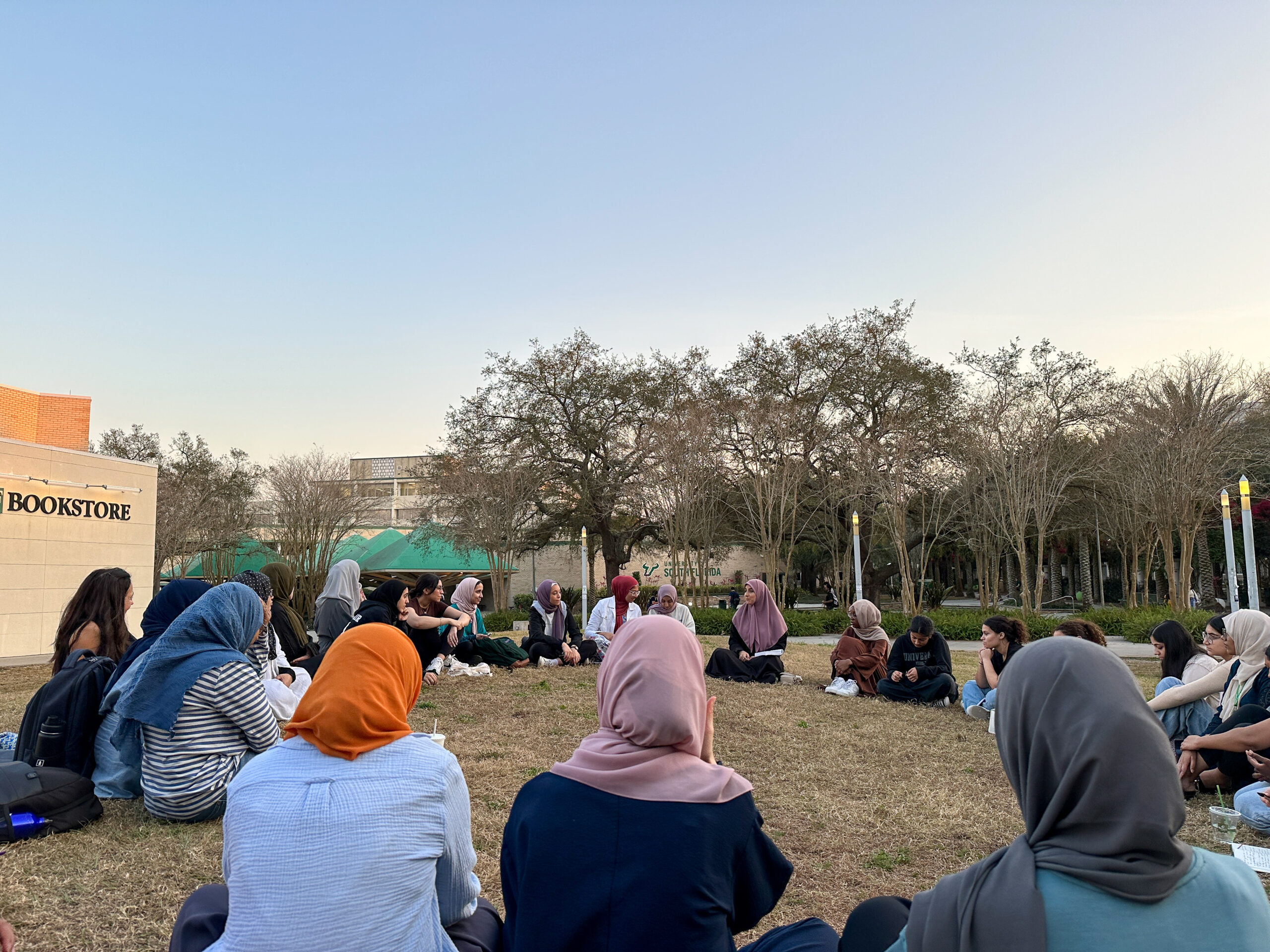‘It allows us to be better human beings’: USF Muslim students observe Ramadan

Fares Ibrahim has practiced the demanding rituals of Ramadan since childhood, which has helped the Muslim Student Association Financial Officer and junior computer engineering major balance the month of fasting and prayer with his college schedule.
“Fasting itself isn’t hard for me as I have been doing it since I was 4 years old, thankfully. Maybe for the first few days my body wasn’t used to the lack of caffeine, but gradually that also went away. I would say though, the hardest part would be time management,” he said.
“I am able to balance my religious and college schedule at the same time. I am able to do Qiyam and read Qur’an while also studying for midterms and finishing assignments. I wake up at 5-5:30 a.m. to eat Suhoor before starting the fast, pray the dawn prayer and then get back to sleep for my 9:30 a.m. class on campus.”
Ramadan is the ninth month in the Muslim Hijri Calendar and is thought to be the time in which the Qur’an was revived by the Prophet Muhammad from God, according to the Islamic Networks Group.
Sawm, or fasting, is the fourth of the five pillars of Islam – a Muslim’s faith is not complete without the practice, according to Islamic Relief.
For disciplining one’s body and soul, the fast imposes a dawn-to-sunset abstinence from food, drinks and sexual intercourse for 29 to 30 days, according to the Islamic Networks Group. This obligation is exempt for Muslims who are young children, ill, pregnant or nursing women.
This year’s Ramadan began on March 22 and will end on April 21, according to Muslim Aid.
However, for Muslim students on campus, Ramadan can also be understood as a time to connect with others within the religion and honor those struggling with food insecurity. While the month can often be misunderstood as a ritual of fasting and prayer, the Muslim faith also encourages followers to give Zakat, or charitable donations, according to Ibrahim.
It can be difficult to undergo the fast while being away from family, Ibrahim said. Back home, different types of foods and meals would be prepared to eat at sunset as people gathered to break their fasts with their families. Though Tampa is a Muslim-friendly city, he said international students will often go through it alone and miss out on being with family for Ramadan.
“Here though, since you can’t really take the culture with you to the airport, you don’t really get a sense of ‘home’ when you break your fast, let alone without your family,” Ibrahim said.
For the month of Ramadan, USF Dining will accommodate dining guests who observe and celebrate Ramadan, according to the USF Dining website. Each Ramadan bag will contain two tea bags, dates, applesauce, a snack pack of almonds, a snack bag of pretzels, a whole fruit or fruit cup and one flavored instant oatmeal packet.
Ramadan bags will be available to purchase at 813 Eats, The Corner Market, Bulls Xpress, P.O.D. Market and Central Market for $10.75 each.
Firial Mahmoud, a freshman biomedical sciences major, said some people may wonder why Muslim students would add more pressure on top of their everyday issues as college students. However, she said many Muslims find themselves counting down the months and days to Ramadan as it allows them to be closer to Allah and bring them peace.
“Being able to fast strengthens our relationship with Allah, in knowing that with patience we reach everything we put our mind to. Muslims count down the months and days from the moment Ramadan ends until the next one to feel the peace, vibes and energy it brings,” she said.
“Ramadan allows us Muslims to be better human beings for ourselves, others and for strengthening our relationship with our lord.”
Celebrations have an impact on not only his life as a Muslim student, but for Muslims around the world, Ibrahim said. The practices Muslims start and maintain during Ramadan facilitate the creation of lifelong habits that help them to not only care for their physical bodies, but to also keep their souls at peace and connected with others.
“Ramadan brings out the best versions of us Muslims around the world. During this time, we are engaged in intense supplication and praying as it helps us connect with God. We are encouraged to be more forgiving and more lenient when dealing with unpleasant [situations],” Ibrahim said.
“We try to stay away from foul language to preserve our fast and keep our disciplinary mindset by controlling our emotions. We are also recommended to be open to welcome guests in our homes and invite them over for food.”






